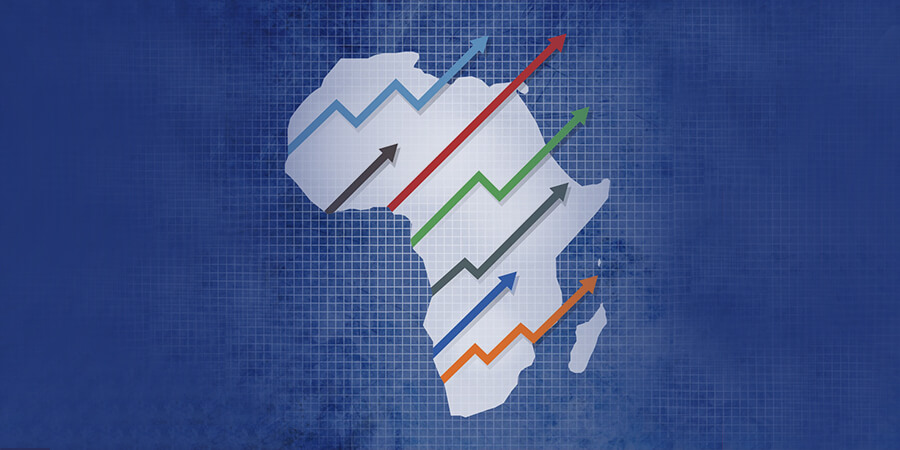Technology includes both the huge body of knowledge and the tools that channel the use of economic resources to effectively, efficiently and innovatively produce services. Technological progress is essential to economic growth and development; the more advanced the technology is, the more quickly the local and global economies of a country can improve. With an ever increasing number of its young people now connected to the internet, Africa is one of the continents expected to see major economic growth due to technology in the coming years.
The African continent covers 20 % of the earth’s surface and is home to 1.3 billion of its people, a number likely to reach 2.53 billion by 2050, according to the Foresight Africa 2022 report. But Africa’s economic transformation, at both the structural and sectoral levels, is undermined because of the lack of investment in science and technology. In the absence of the economic and scientific infrastructure necessary for innovation, the continent has continued to rely on the colonial development model of resource extraction, a process which is unsustainable and largely responsible for continued poverty and dependence on aid.
Moreover, the ongoing digital revolution is transforming economies and driving innovation across all economic sectors globally. Africa is facing the challenge of meeting Sustainable Development Goals (SDG) while adapting to other challenges as well. Digitally transforming all elements of the continent's economy — from education to healthcare, from agriculture to telecommunications — will require innovative solutions and inclusive financial strategies. To achieve their true potential, Africans need access to digital tools and technologies while operating within a regulatory environment that protects the safety and interests of all people. Today, Africa's mobile service subscriptions are skyrocketing, with the prediction of 613 million subscribers to mobile services in sub-Saharan Africa by 2025, according to the GSMA.
Paving the Way Towards Economic Growth
Despite the challenges ahead, Africa is focusing on finding solutions that can help its economic growth, and harnessing technology is the key. The first solution should be to digitize the language to improve reading and literacy levels across the continent, as communication is at the core of every development process. Also, there are many languages spoken in Africa, so interactions within and between all communities impact the continent's economic, social and cultural welfare. Governments should continue to promote the development of these languages, especially through digital channels; this can unlock critical insights and improve communication skills among a diverse population. In addition, technology is a tool that enables the control of information and data, and unfortunately, in Africa, there is little information available on search platforms. However, the absence of data in the search does not imply its absence in total. The right procedure is needed to disseminate this information to all African countries across the continent.
Continuing, an effective second solution should be the funding of research and development (R&D) at educational institutions. African governments should prioritize research investments by focusing on producing and commercializing scientific knowledge. Using non-traditional funding mechanisms like micro-contributions, public-private partnerships and market-based financial transactions can help these educational institutions bridge the finance gap in R&D. Thus, financing through innovative mechanisms will help institutions achieve better research outcomes.
It is also of utmost importance to implant a culture of innovative solutions, which itself constitutes a dominant part of life in Africa. From professional learning communities in agriculture and education to neighborhood groups, we can see how innovation is celebrated and scaled. However, innovations are passed from one generation to the next through knowledge. As an example, several communities continue to adapt to the effects of climate change through localized, highly-efficient mitigation mechanisms. The greatest value in Africa and among its people should be in creating a shared culture of innovation, one that will trigger a desire to develop solutions for community-specific problems. Likewise, individuals will be empowered to transform their communities with economic growth as the goal.
Technology has played a significant role in the growth and development of Africa. The economies of many African countries have experienced a massive shift since the advent of the internet. Unlocking Africa's growth potential requires inclusive strategies that empower everyone regardless of their socio-economic background or literacy level. Africa isn't just a consumer of foreign innovations, it is its own home-grown solution. Investing in R&D, empowering people and scaling innovations are keys to seeing these solutions flourish. And technology offers Africa a tremendous opportunity for growth, opportunity and prosperity.
